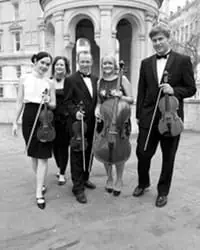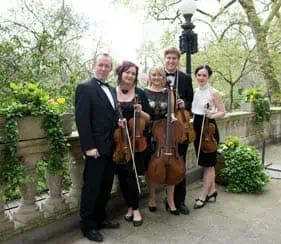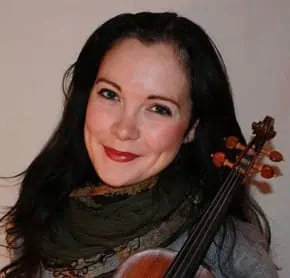A street performer or busker is a person who performs an art in public places for donations of money.
Busking, or performing in public areas for gratuities or tips, is a tradition dating back to antiquity.
Buskers used to be troubadours or bards who went travelling and brought not only entertainment but also news to their audience.
Buskers perform in a wide variety of artistic areas: they can be musicians, dancers, mimers, acrobats, poets, fire eaters, clowns, magicians, puppeteers, jugglers, storytellers, contortionists, escape artists, rope walkers, living statues and more.
Buskers expect money or gifts from the audience in return for their acts.
Money is usually dropped into the performer’s ‘hat’ or instrument case placed in front of them.
Buskers perform in a variety of outdoor locations, usually in a pedestrian street, but also in fairs, festivals, shopping centres and trains.
They choose the “pitch” that best suits their act.
Dancers and circus performers need lots of open space around them while musicians look for a pitch with good acoustics.
At the end of their show, buskers sometimes sell merchandise such as CDs.
They are normally required to obtain a Street Trading Licence from their local council.
There are broadly two types of busking acts:
- Walk-by acts: buskers perform their act continuously for a long time. This happens mostly with musicians and mimers who perform their repertoire while people walk by them. Occasional passers-by stop to hear a song or two but no defined audience forms.
- Circle acts: these acts work more like a “show” and have a distinct beginning and end. The performers first try to attract a crowd that will stand in a circle around them to watch the show. Circle acts are well suited for theatre, dance, acrobatics, magic, etc.
Salary
There is no fixed salary for buskers and their earnings can vary hugely from one day to the other since they rely on tips from passers-by.
As a guide, it is possible to earn over £60 an hour if several conditions are met: good pitch, generous audience and a great show.
Some times of the year can be more favourable for buskers, such as the summer and Christmas.
However, Christmas can also be very unprofitable as the competition is at its toughest.
Responsibilities
- Organise and prepare the act in advance
- Find a place to perform
- Set up a performance area
- Attract and interact with the audience
- Perform act(s) at a professional level
- Follow a code of good conduct
- Act safely and not endanger themselves or others
- Sell merchandise
- Look for opportunities at festivals and with street art promoters
Qualifications
There is no required qualification to become a busker.
However, it is highly advisable to be professionally trained in whichever street art you wish to take.
Skills
- Artistic and performance skills
- Enthusiasm
- Organisation and planning skills
- Outgoing personality
- Self confidence
- Courage
- A good sense of humour
Working Conditions
The working conditions are both extremely flexible, as buskers choose the time and place for their work, and stringent as they need to find the appropriate conditions to attract interest.
Working outside, especially in the UK, means that buskers need to be physically fit and armed against cold, wind and rain.
However it is not advisable to busk in the rain as passers-by are likely to run for shelter and not stop to look at a show, and performers run the risk of damaging their equipment.
The hazards of performance (be it on the street or on stage) include injuries from falls or accidents.
Buskers might encounter hostile reactions to their work.
It is legal to busk in the UK, however, some local authorities require buskers to apply for a permit to perform on the street.
Buskers usually follow a voluntary code of conduct: they should not be intrusive, cause obstruction to the entrances and exits of nearby shops or behave in an abusive or threatening manner towards the public.
Musicians should not be playing within 50 metres of another performer.
Experience
Buskers are usually highly skilled and have practised their art for many years so that they can attract a large audience.

Employers
There are no major employers: buskers promote themselves through word of mouth or agencies such as XTRAX, a development agency for street arts that offers a directory of buskers and street art promoters.
Buskers can also find work in dedicated busking festivals in the UK and abroad such as the World Buskers Festival in New Zealand, Victoria International Busking Festival in Canada or Buskfest in the UK (Banbridge).
The London Underground Busking Scheme offers 39 pitches across 25 Central London stations for buskers.
The licensed buskers benefit from a large audience of about 3.5 million tube passengers every day.
Career Progression
Buskers can take up both the roles of performer and teacher.
They also perform at organised events (gigs in pubs and concert venues, plays in theatre, etc) and may decide to work in a more conventional setting.
Also known as…
- Street performer
- Street entertainer
- Street musician
Related Jobs
What’s it really like?
Zoe Robertson, 30, is a musician who busks in London.
How long have you been in this particular job?
I’ve busked in various places since I was about 10 years old.
There are some lovely spots in Vancouver, Canada (my hometown), which are known for street performance.
Many festivals throughout the UK also hire groups to busk as entertainment and I’ve done that since moving here in 2006.
In London, I’ve only ever busked in Covent Garden, since May 2009.
What did you do before this job?
Busking is only a part of my job as a violinist.
Before returning to education to complete my degree in music performance, I held a number of pretty terrible and boring jobs, for example working in call centres.
I spent a couple of years in graphic design and book layout, specialising in illustration.
While this job was more interesting, and certainly more financially rewarding, it was also very isolated as I worked mainly freelance from home on my own.
The worst job I can remember was a short stint in a fish processing and packaging plant.
What do you do in a typical working day?
No two days are the same.
I generally have a fairly relaxed morning and afternoon in which I attend to emails and administrative necessities.
Almost 80% of my work happens in the evening or late at night so I find it important not to wear myself out before the end of the day.
Busking in Covent Garden is strictly timetabled and can happen at any time of the day, from 10am to 7.30pm.
The timetabling allows for everything from teaching to concerts and rehearsals to be scheduled around the busking times.
Being a musician requires an extremely flexible schedule and an ability both to stay up late and wake up early.
Do you busk alone or with a group of performers?
Which is more financially profitable?
I busk in a group named Oopsie Mamushka.
We perform with between 4 and 6 string players.
We play classical music but perform it in an unconventional way that involves dancing, singing, laughing endlessly and lots of audience participation.
The aim is to be a clown with the audience.
Because our shows rely on getting a lot of attention from passers-by, we do better with more performers.
As I am quite a quiet person and enjoy interacting with other performers, performing in a group is more financially profitable for me.
Do you always work in the same pitches or do you travel?
When Oopsie Mamushka busks, it is almost always at Covent Garden.
Covent Garden, however, acts as a dramatic and noisy business card and our busking frequently leads to work in other parts of the city and country performing at corporate events, weddings, parties and festivals.
What do you like about the job?
I really enjoy playing classical music in a way that doesn’t alienate the audience who isn’t familiar with it.
I’ve spent so many years being surrounded by people who treat classical music as if it’s a matter of life and death.
It’s so refreshing just to make people laugh.
I love it when we play a piece of music (inevitably it’s either Pachelbel’s Canon in D or Bach’s Air on the G String) and I see someone crying happily because it was played at their wedding.
It’s easy to roll one’s eyes over the classics as a professional musician because we get tired of playing them.
It’s also easy to forget that the classics are often some of the only exposure people have had to classical music and that for them, it’s very meaningful.
What do you dislike about the job?
There seems to be some confusion over the location of the line that separates busking and begging.
Many members of the public seem proud to announce their ignorance of this line with comments (attempting to be witty) about ‘glorified begging’ or ‘getting a real job’.
As far as entertainment goes, I think busking is the best offer in town.
If you like it, you pay what you think it’s worth or what you can afford.
If you don’t, you leave and you pay nothing.
I don’t see Hollywood offering that kind of deal (and we’ve all wanted our money back at least once after a film).
We’re all entitled to opinions, but I don’t walk into banks firing barbed comments at the clerks.
I would like the opposite to be respected.
What is your best memory as a busker?
Honestly, it’s difficult to pick just one.
One afternoon, though, there was a girl of maybe 5 or 6 who had sat with her mother on the steps of Covent Garden watching our show.
She was holding a rainbow-striped stuffed cat.
The very last piece we played was Bach’s Air on a G String and when we began, one of our violinists approached the little girl and played to her sweetly.
Completely uninterested in our violinist, she dismissed him and moved to the centre of the courtyard.
She was in full view of possibly 300 pairs of eyes, all of which were now watching her.
Without a care for any of them, she held her stuffed cat out in front of her, one paw in each hand, and began to dance one of the most intuitive performances I’ve ever seen.
What struck me most was that as we approached the end of the piece, something unspoken told her we were nearing the end.
By the beginning of the last bar of music, she had returned to the point at which she had risen from her seat and began her slow descent into a bow.
By the time we played the last note, she had reached the lowest point of her bow.
Our bows went into the air, she stood up straight, she plopped the toy back under her arm and bounced back to her mother, completely unconcerned with anyone else in the vicinity.
All eyes were on her.
There was a moment of silence and then the entire audience erupted into an incredible roar.
I think at least 3 of us who had been playing were in tears.
What is your worst memory as a busker?
Recently, in Covent Garden, there was a table of people whose type I described in a previous question.
With them was a boy of maybe 9.
In between pieces he would appear by our basket with a 1p or 2p coin and a snide remark about what we were doing.
What we do is almost never met with this attitude from children so it surprised us all.
As the show went on, we noticed the adults at the table feeding him both the coins and the lines.
I thought it was a low thing to send a child to do this.
Have you ever feared for your safety as a busker or been mistreated by the authorities?
I’ve only ever performed on pitches which are licensed and in areas that are known for it so it’s never been a problem.
I fear for my instrument when people throw coins from the railing at Covent Garden.
Don’t do it!
My instrument and repairs to it cost far more than any coin you could possibly throw at it.

What advice would you give to someone thinking of doing this job?
I don’t like to give blanket advice, but here are some things I’ve found important:
- Be social. A busking network is your work.
- Enjoy being social. People know when they’re being used.
- Enjoy what you’re doing. The audience knows when you don’t.
- Stay creative. Doing the same show over and over again will drive you crazy and make you stale.
- Test yourself. Busking is the perfect environment to practise new things or things that scare you. The worst thing that can happen is that the audience won’t pay you for it. You can make up for it with the next bit that you’re comfortable with.
What job(s) do you think you might do after this role?
I’d like to develop a show and take it on tour to new parts of the world.
What other inside-information can you give to help people considering this career?
Pay attention to the non-audience you see when you are busking.
Policies change all the time and if you are friendly with the shopkeepers, residents and regulars, you have a better understanding of your workplace, your job and you!
How did you end up doing this job, was it a childhood dream or was it by accident?
When I was young, it was encouraged by my music teachers.
I’ve always had issues with performance anxiety and busking has always been the single most important method I found for dealing with it – by miles!
In England, I started busking with a group I played with in college.
In Covent Garden, I was introduced to the pitch by a friend with whom I went to college.
In both cases it was mostly accidental, but I find that the best things usually are.









